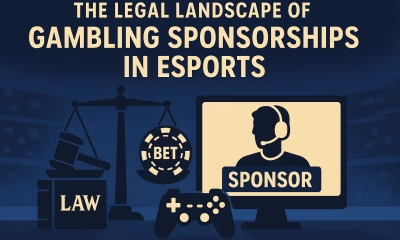Gambling
Historic Esports Chronicles – 322 Meme Unearthed: From Betting Scandal to Dota 2’s Emblematic Meme
The digital realm of Esports has borne witness to a myriad of enthralling victories, heart-wrenching defeats, and amidst all, some dark days that have left indelible marks on the history of competitive gaming. This narrative unveils the story behind Dota 2’s “322” meme, a tale that unfolds in a single match, but whose echoes reverberate through the Dota 2 community to date.

The Curtain Rises
The genesis of “322” traces back to 2013, starring Alexey “Solo” Berezin, the then player of team RoX. The team, originally a StarCraft: Brood War clan named RoX.KIS, transitioned into the Dota 2 arena, marking their presence in the StarLadder StarSeries Season 6. The journey was smooth until a fateful match against zRAGE, a relatively lower-tier team. Contrary to expectations, RoX.KIS found themselves entangled in a web of errors, eventually succumbing to a shocking defeat with a scoreline that read an appalling 50-22 in favor of zRAGE.
The Underbelly Exposed
Post-match investigations by StarLadder unearthed that Solo had placed a bet against his own team through a gambling site, leveraging his then-girlfriend’s account. The stakes were modest, a mere USD 100, but the potential return was USD 322, stemming from the odds of 3.22. This unassuming figure, USD 322, would soon be etched into the annals of Dota 2 lore as a synonym for throwing a game.
The Reckoning
The fallout was swift and severe. StarLadder imposed a lifetime ban on Solo while the rest of the RoX.KIS roster faced a three-year banishment. The only exception was Vanskor, who had not participated in the contentious match. The organization itself was barred from StarLadder events for a year. However, following Solo’s confession and assertion that his teammates were oblivious to his bet, StarLadder commuted his ban to a year and exonerated the rest of the RoX.KIS roster.
The Lingering Echoes
The “322” incident catalyzed a discourse on the legal frameworks surrounding esports betting, the enforcement of competitive integrity, and the mechanisms for adjudicating such infractions within the esports ecosystem. The meme “322” morphed into a symbol of misconduct, serving as a constant reminder of the legal and ethical boundaries within competitive gaming.
Post-scandal, Solo’s journey of redemption, marked by his tenure with reputed teams like Virtus.pro, showcased a narrative of resilience and rehabilitation within the esports community. His story underscores the significance of robust legal frameworks to address misconduct while highlighting the potential for rectification and personal growth within the esports realm.
Conclusion
The “322” saga serves as a seminal case study in esports law, illuminating the intersections between competitive integrity, legal adjudication, and the cultural repercussions within the esports community. As the Dota 2 community continues to evolve, the legacy of “322” provides a legal and ethical reference point, reflecting the maturation of legal frameworks in the dynamic domain of esports.
Image source: Esports Stories via YouTube


















